Beta reading is an incredibly important step in finishing your novel, yet it’s one many authors skip. It’s difficult to blame them: they’ve finished their story, it’s just as they want it, and publication beckons. The last thing they want to do is search around for feedback on a book they’ve already decided is finished.
And yet without that feedback, a forest of issues awaits them. Concepts that seemed clear are misunderstood, characters are completely misinterpreted, and on page eighty-nine there’s a whole string of dialogue with no indication of who’s saying what.
These are the types of issues authors can’t spot in their own work. It’s not because of any failing on their part, it’s because they know their own work so well.
Aren’t I enough?
One of my favorite pieces of advice about writing is the following:
“Write the book you want to read, the one you cannot find.”
– Carol Shields
This is an exhortation to be both original and genuine. To tell the story that you, out of everyone in the world, are most suited to tell. The downside is that many authors take this too literally.
‘You’, in this piece of advice, should be translated as ‘a reader with exactly your tastes’. This may seem obvious, but many authors take it to mean ‘you, with all your knowledge and experiences’. What’s the difference? Well the first interpretation encourages you to engage with topics, styles and tools that suit your tastes. Writing something which suits your own tastes allows you to write with enthusiasm, and gives you an innate understanding of how the story should work. Those who already share your tastes will understand on an instinctive level that this story is for them, and those who don’t will recognize a sincere and distinctive voice that’s confident in its subject matter.
On the other hand the second reading, ‘write the book you, with all your knowledge and experiences, want to read…’, excuses all manner of sins. It means you can skimp on characterization and explanation, on building themes and foreshadowing major events, because you already understand how everything works. If your characters are feeling emotions and experiencing situations with which you’re familiar then you don’t have to waste time explaining how they feel. Why would you? Your intended audience already knows.
Even the best writers sometimes dip into this behavior. They understand their characters so well, are so familiar with their stories, that they can’t help but assume certain vital information is already understood. These moments are the author’s blind-spot, and they can be huge.
Happily, these kinds of mistakes are readily apparent to beta readers; in fact they jump off the page. Missing bits of motivation, events that seem to come from nowhere, are glaring absences for everyone but the author.
The example above, of a page of dialogue where it’s unclear who is talking, is very common. That’s because authors have such a clear visualization of the scene that to them it’s obvious who’s talking. Like being asked to name everything in the room that’s blue and missing the jeans you’re wearing, it’s an error of bias that’s immediately apparent to an outside observer. And that’s why you need people who really are outside observers.
Your friends can’t help you now
The common, and oft-ignored, advice is ‘family and friends are not adequate beta readers’. The reason usually given is that they care too much about you to be objective, but this ignores the very human desire to consider ourselves the exception. Every budding author reads that advice, and then every budding author thinks ‘my family and friends may love me, but they understand that this is too important for sugar-coating.’
While that may be true, there’s another reason why you shouldn’t use family and friends as beta readers. These people know you and so they are afflicted by some of the same biases you are. They may be from the same area as you, allowing confusing colloquialisms to pass by unnoticed. They are almost certainly familiar with your style of speech, subconsciously fitting your rhythm to the writing in front of them in a way that later readers won’t be able to. They may catch 80% of what less familiar beta readers would, but that still leaves 20% of the easily caught mistakes behind.
And, unique-in-all-the-world as your relationships are, they also probably like you too much to provide the honesty you need.
Far better are members of a writing group, in person or online, who are motivated to read your work out of something other than affection for you or existing interest in the project. These people can catch the maximum number of errors in your blind-spot and, since they’re writers, phrase the issues and possible solutions in a way that helps you fix them – the difference between ‘we need to tape over this hole in the raft’ and ‘oh look, we’re sinking’.
That’s assuming, of course, that you want their solutions.
Rejecting solutions, accepting problems
One of the biggest fears authors have about beta readers is that they’ll provide advice that works for their ideal reader. Whatever advice someone else gives, even if they’re a skilled writer, it will inevitably be for the book they want to read. It’s not purposeful but it’s almost always unavoidable, and so asking for a dispassionate check of your work can often feel tantamount to saying ‘hey, how could I change this so you liked it more?’
This is where authors have to learn to reject solutions while accepting problems. It’s a real skill, requiring you to examine criticism for the underlying issue. Say that a beta reader suggests you give a character more lines. This solution may enrage you – the character was meant to be stoic – but that doesn’t mean the issue it was meant to address should be ignored. Maybe they felt they didn’t know enough about the character, or maybe the stoicism came across as an absence rather than its own character trait. Once you identify the perceived problem you can devise a different solution that will be more to the taste of your intended reader.
This is really what the beta reader is for; spotting problems you can’t see and giving you the chance to fix them your way. Of course, you should be polite, make sure your readers feel heard and thank them for their efforts, but their suggestions are going to be far less useful than simply knowing the passages they had issues with.
Beta means better
At the end of the day, beta reading is just another tool you can use to write the best book possible for your intended reader. I’m fond of describing works of fiction as ‘machines made of words’ (to paraphrase William Carlos Williams) and you can bet no other kind of machine goes into mass production without a thorough beta test.
If you’re still not comfortable with the idea of outside critique try Seven Truths To Combat Bad Book Reviews for a perspective that might just change your mind. Or for more on the advantages of joining a writers’ circle check out Why Joining A Writing Group May Be The Best Thing You Do All Year.

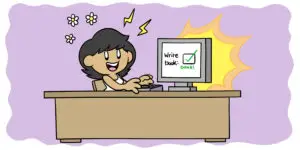
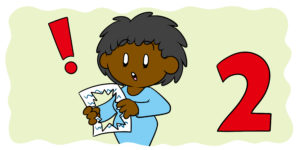
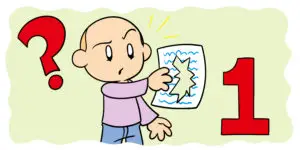
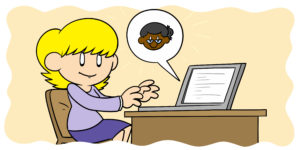
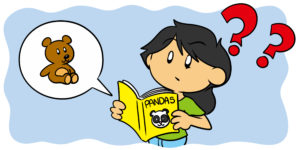
4 thoughts on “Why Beta Readers Are Vital To Your Success”
Intended for novel writers, Mr. Wood, your article really hit home for me, a self-publisher of three non-fiction books all of which were “books I wanted to read and couldn’t find.”
It is significant that the one I sought Beta approval for (a travel bibliography submitted to Booklist) got that approval and led to a contract with a major reference book publisher for two updating editions I edited. As I compiled that bib, I assiduously adhered to a set of guidelines available from Booklist (ultimate Beta advice) on how they judged reference books.
Why did I not then learn that lesson for Book 3 on the history and pop culture of sociable bridge playing? Laziness and being perhaps too old by then–I didn’t start self-publishing until 65.
I did get great peer reviews from the serious bridge-playing establishment, but never sought beta in-put that would certainly have alerted me to the book’s major flaw. It falls into two categories: popular culture (games) and culinary history. I knew better! Bookstores and libraries hate that.
I’ve had success within the world of bridge with my book–it is unique, an unwritten about topic before mine–but it could have been so much more as I think back..
Now I’m 94, still fit and active — but do I have the energy to rewrite it with beta in-put from a creative non-fiction editor?
Anyway, Mr. Wood, I printed out your article and filed it in the tray I have marked — “If I ever rewrite Bridge Table or What’s Trump Anyway?”
First thing I would do is eliminate its sub-title: An affectionate look back at sociable bridge & ladies lunch!
maggy simony
Hi Maggy,
Wow, quite the success story, setbacks and all. I’m genuinely flattered to be sitting in your tray, and whether you decide to rewrite or not it must feel amazing to be the one to have put that unique perspective out there.
Best,
Rob
Wonderful advices, although it’s not so easy to find beta readers here in Italy! 😉
Hi boostwriter,
Well I’m sure you’d know better than I do, but don’t rule out online connections.
Best,
Rob